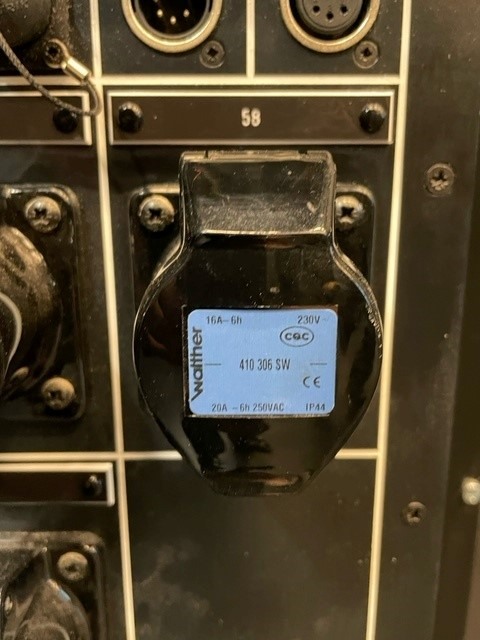Looking to tap the impressive hive mind here again.
We have completed an installation of internally-wired theatrical lighting bars which have 16A SPNE BS EN 60309 outlets on them. These are mounted on 'Smartsocket' backboxes : https://www.robolights.co.uk/products/smart-socket/16a
The outlets themselves are Walther 410 306 SW like this:

This image shows the socket mounted to a connection panel but it's the same item we have mounted to the lighting bar.
There is a circuit identifier label affixed to the rear of the Smartsocket assembly, which is easily visible but the Theatre Consultant has stated that they want an identifier in the form of a traffolyte label riveted to the flip cover of the outlet (they won't accept adhesive labels). We can use plastic rivets which we think will fit, but the label would obscure some of the information on the lid. We may get away with only obscuring the part number and a bit of the manufacturer name and the CE mark. The rating information could likely be left still visible.
The environment is indoors in a 'dry' location so there isn't really a need for any specific IP rating.
So to my question: Is there anything from a regulation/compliance perspective that would prevent us from doing this?
Thanks in advance.
Jason.
